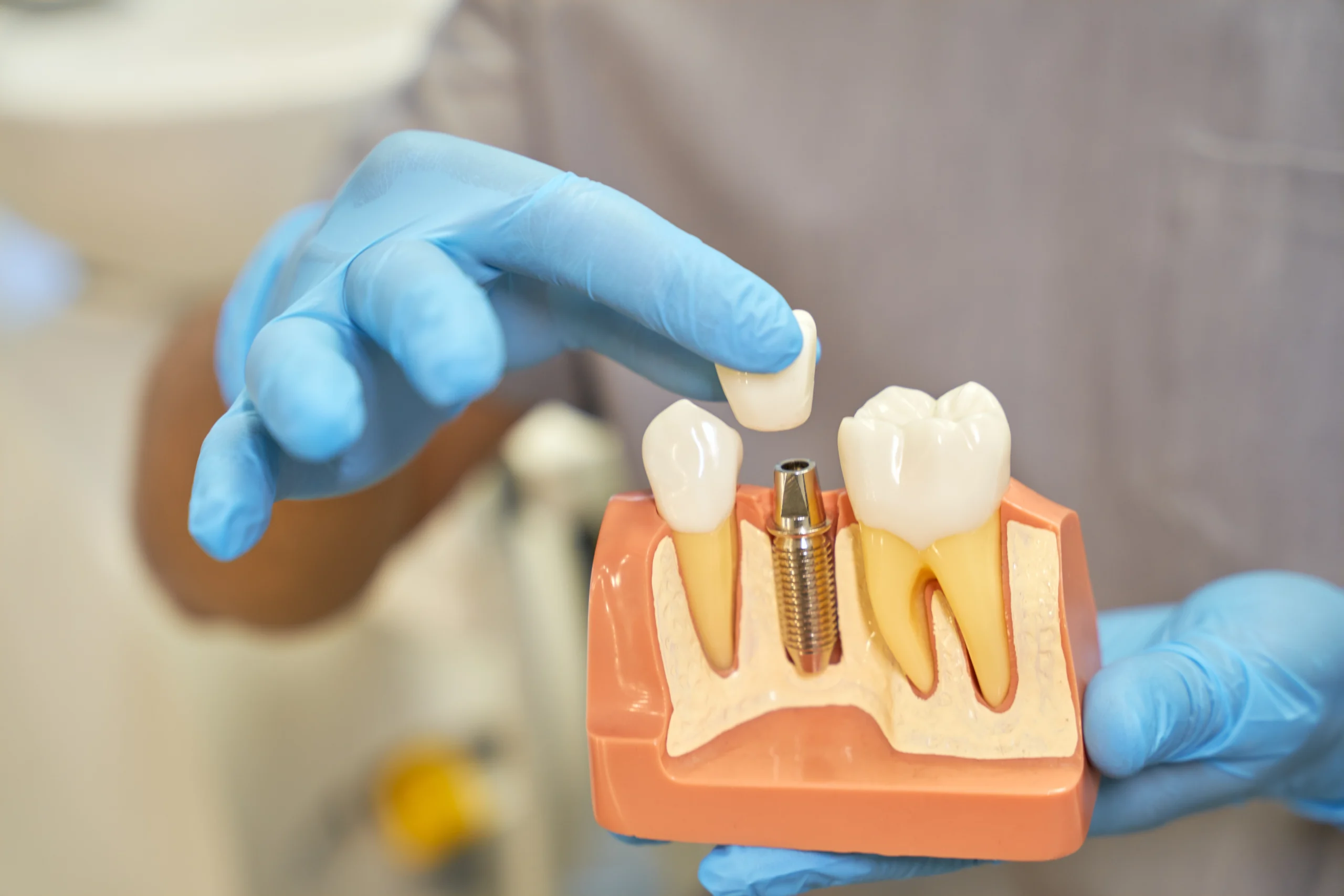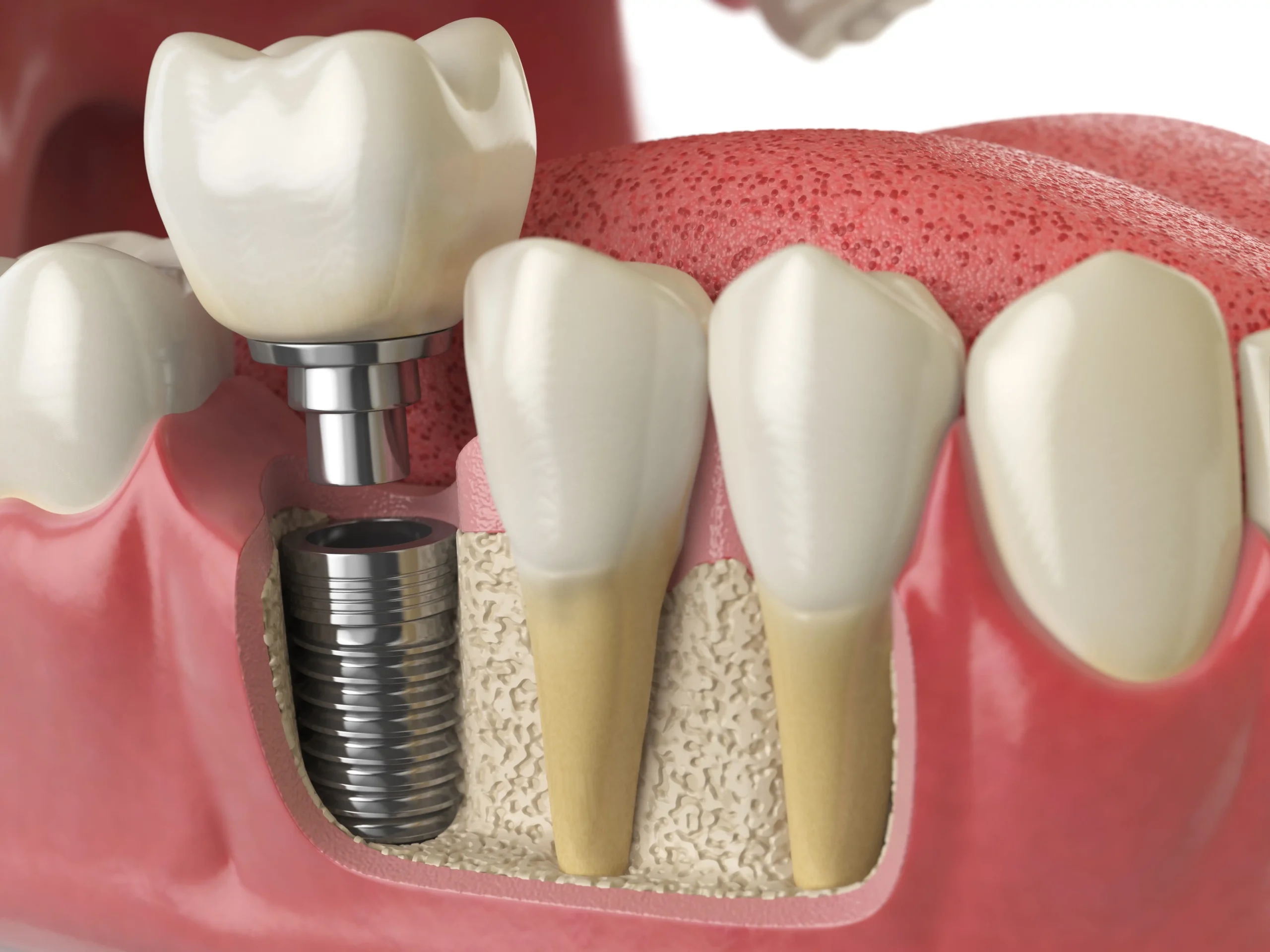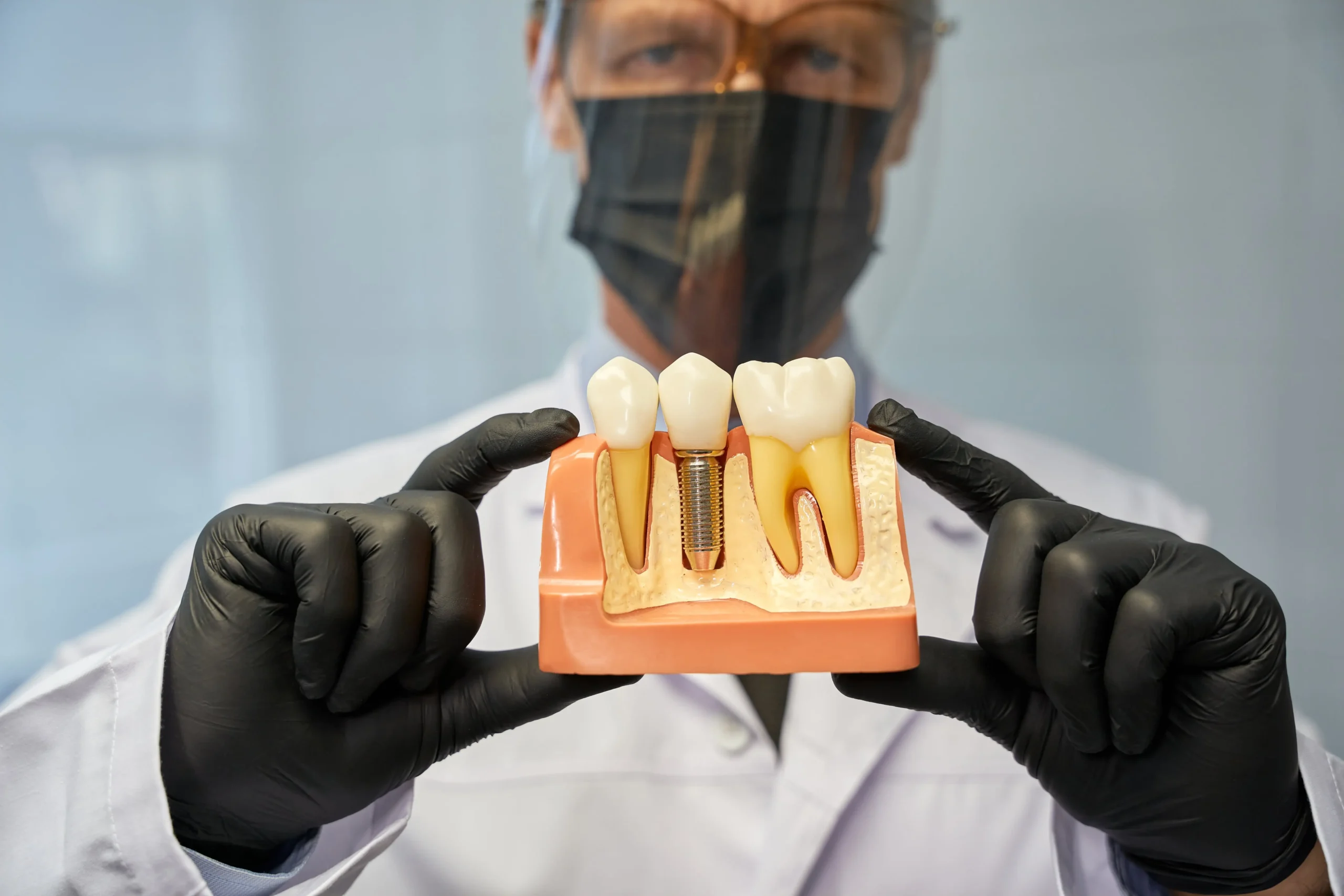Dental Blog - Hughson, CA
Tips, Facts, And The
Latest In Dentistry

How Long Do Dental Implants Last? A Research-Backed Review

Dental implants are one of the longest-lasting solutions for missing teeth. With proper care, they can last 10 to 30 years, and many patients enjoy their implants for a lifetime. However, their lifespan depends on oral hygiene, lifestyle habits, bone health, and regular dental visits.
What Affects the Longevity of Dental Implants?
To begin with, several factors directly impact how long dental implants can last:
- Oral Hygiene: Daily brushing, flossing, and professional cleanings help prevent infections like peri-implantitis.
- Bone Health: A stable jawbone is critical to long-term implant success.
- Lifestyle Habits: Smoking, teeth grinding (bruxism), and poor diet can significantly shorten the lifespan of implants.
- Dental Check-Ups: Regular visits help your dentist catch early warning signs and prevent implant failure.
For example, a non-smoker who maintains good oral hygiene and follows up with their dentist regularly is far more likely to keep their implants healthy for decades.
How Long Do Dental Implants Typically Last?
According to a 15-year clinical study published in Acta Orthopaedica Scandinavica, dental implants demonstrate excellent long-term survival rates with proper placement and care (Albrektsson et al., 1981).
Additionally, a systematic review in Clinical Oral Implants Research reported that implant-supported prostheses have survival rates of over 90% after 10 years (Pjetursson et al., 2012).
It’s worth noting that while the titanium implant can last decades, the crown (the visible tooth) may need to be replaced after 10-15 years due to normal wear.
The bottom line: dental implants are one of the most durable and long-lasting tooth replacement options available today.
How Can You Make Dental Implants Last Longer?
In summary, you can significantly extend the life of your dental implants with these essential habits:
- Brush and floss daily to keep the gums and surrounding tissue healthy.
- Schedule dental check-ups every six months to monitor implant health.
- Quit smoking to drastically reduce the risk of implant failure.
- Protect your teeth by using a night guard if you grind your teeth.
- Manage overall health conditions like diabetes, which can impact implant success.
For example, smokers are up to three times more likely to experience implant failure than non-smokers, making smoking cessation one of the most critical steps for long-term implant success.
The key takeaway: with the right care, dental implants can last a lifetime.
Can Dental Implants Ever Fail?
Occasionally, dental implants can fail due to poor bone integration, infection, or excessive pressure too soon after placement.
Common signs of implant failure include:
-
- Persistent pain or discomfort.
- Swelling or gum recession around the implant.
- Implant mobility or looseness.
The good news is that early intervention can often save the implant, and in many cases, a replacement implant can be placed successfully.
How Do Dental Implants Compare to Other Tooth Replacement Options?
| Tooth Replacement Option | Average Lifespan | Maintenance |
| Dental Implants | 10-30+ years | Daily care, regular check-ups |
| Dental Bridges | 5-15 years | Cleaning around supporting teeth |
| Dentures | 5-10 years | Frequent adjustments, possible relining |
Dental implants are the most natural-looking and durable option among these choices.
Final Thoughts
Dental implants offer one of the best long-term solutions in dentistry, often lasting decades and sometimes a lifetime. By practicing good oral hygiene, avoiding harmful habits, and prioritizing regular dental visits, you can maximize the life of your implants.
👉 Protect your investment.
👉 Enjoy your confident smile for years to come.
Sources
- Albrektsson, T., Brånemark, P. I., Hansson, H. A., & Lindström, J. (1981). Osseointegrated titanium implants: Requirements for ensuring a long-lasting, direct bone-to-implant anchorage in man. Acta Orthopaedica Scandinavica, 52(2), 155–170.
- Pjetursson, B. E., Thoma, D., Jung, R., Zwahlen, M., & Zembic, A. (2012). A systematic review of the survival and complication rates of implant-supported fixed dental prostheses (FDPs) after a mean observation period of at least 5 years. Clinical Oral Implants Research, 23(S6), 22–38.




